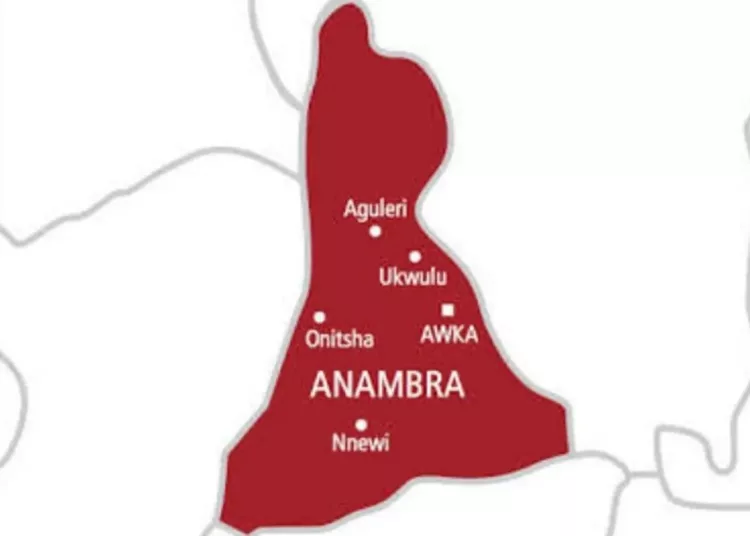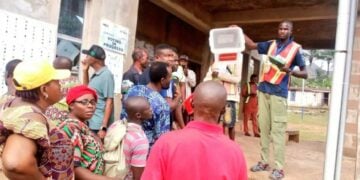The Centre for Democracy and Development (CDD-West Africa) has raised concerns over voter apathy, vote trading and gaps in institutional preparedness during the Anambra State governorship election held on Saturday.
CDD-West Africa, in a preliminary statement on the Anambra election, observed that there were multiple incidents of vote buying and trading across the state with particularly high concentrations in the central and southern senatorial zones.
In the statement signed by its director, Dr Gauda Garuba and chairman of Election Analysis Centre, Professor Victor Adetula, CDD said these activities, often carried out in full view of voters and officials, directly undermined the transparency and fairness of the electoral process.
“In Awka South, Anambra Central, and in Nnewi North LGA, vote buying was observed in high-density polling clusters, including Nodu Village Hall 1 (PU 009, 2,780 registered voters), Nodu Hall 2 (PU 010, 1,983 voters), and Ezinifitte Hall 2 (PU 008, 3,352 voters) and Nibo 002 Maternity I.
“Voters were seen participating in ‘vote-and-snap’ behaviour taking pictures of their marked ballots, likely as proof of compliance in exchange for financial incentives. In some instances, party agents used money transfer platforms rather than direct cash payments to complete the transactions.
“Party agents offered voters up to N10,000 and N5,000, respectively, depending on the location. For example, in PU 005, Achina Ward 3, and in Aguata LGA, opposite PU 012, Ward 1, agents distributed N5,000 and N2,000 payments to voters.
“In Anambra South, similar patterns were recorded. At Ichi PU 010 in Ekwusigo LGA, and Achina Ward 1, PU 012 in Aguata LGA, with agents distributing cash payments ranging from N2,000 to N5,000 in rooms situated directly across polling units. At Igboukwu Ward 2, Central School PU 017, party agents were seen distributing N5,000 to voters openly, without any response or deterrent from security personnel.
“Observers also reported that in Uruagu Ward 1, PU 006 in Nnewi North LGA, party agents maintained informal logs of voters who had received payments, confirming the existence of a systematic vote-trading mechanism,” the statement said.
CDD-West Africa said the delays observed in a small but notable portion of polling units suggested operational gaps that needed to be addressed, particularly regarding last-mile logistics in harder-to-reach or densely populated communities.
“In Onitsha North LGA (Ward 15, PU005) and Woliwo Ward 15 (PU001), operations were delayed due to the late arrival of officials and the absence of security personnel as of 9:00 am. Similar delays were observed in Ogbaru LGA (Okpoko Ward 5, PU004 and Iyiowa Odekpe Ward, PU008) and Anambra East LGA (Ward 002, PU010),” it said.
The organisation noted that while Bimodal Voter Accreditation System (BVAS) was deployed in all polling units monitored, the devices experienced failures in some instances, as observed Ward 4 (Agulu), PU011, in Anaocha LGA, BVAS failed to capture thumbprints, and no corrective measures were in place.
“Similar issues were observed in Idemili South LGA, Ward 2 (Alor), PU004, and Nkpor Ward 2, Idemili North (PU002) where voting had not commenced by 10:12 am and 11:00 am, respectively. In Anambra Central, particularly in Njikoka LGA, Umudim Ward 2 (PU035), the facial recognition feature of the BVAS machine functioned poorly,” it noted.
According to CDD-West Africa, security personnel were present at 87.3% of polling units observed while 12.7% recorded no security presence at the time of observation.
It observed that despite strong interest shown by youth during the Continuous Voter Registration (CVR) period, turnout among young voters on election day was visibly low, especially in urban centres such as Awka and Onitsha.
On violence during the polls, CDD-West Africa observed that “in Orumba North LGA, Obodo Amagu Square PU 004, a violent confrontation between party agents escalated into a physical altercation that led to the destruction of the ballot box, ultimately halting the voting process.
“This occurred in the absence of sufficient on-site security and exposed both voters and electoral officials to serious risk. A particularly disturbing report emerged from Obiofia Umuenem Hall PU 002 in Anambra South, where party agents allegedly forced voters to vote for certain candidates through intimidation.”
In inclusion, the centre said acessibility for persons with disabilities remained limited in several areas, including Onitsha North and Idemili South LGAs.
“Despite INEC’s public commitment to inclusion, observers reported that many polling units lacked wheelchair access, signage for the visually impaired, or priority voting arrangements,” it added.





